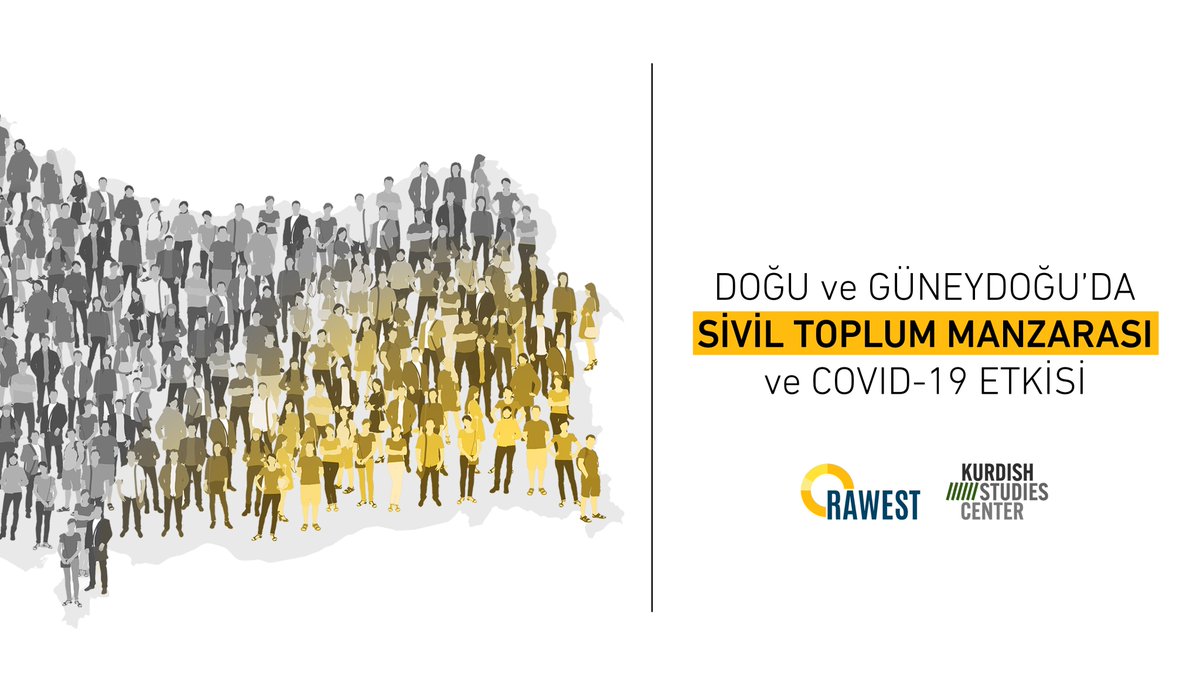The NGOs of the Region Need Support and Resources to Overcome the Pandemic Without Damage

The report titled The Civil Society Landscape and Covid-19's Impact in the East and Southeast, drafted jointly by Kurdish Studies Center and Rawest Research, notes that both NGO employees and their field have been negatively impacted by the pandemic, and that resources and support are necessary to overcome this predictably long process.
Kurdish Studies Center indicate that they conducted the research The Civil Society Landscape and Covid-19’s Impact in the East and Southeast in order to highlight the current situation of NGOs in the region, their activities, the opinions of NGO representatives concerning the civil society landscape, how much they were affected by Covid-19, and their future projections.
According to the results of this study conducted between August and September 2020 through both qualitative and quantitative research methods, the representatives of NGOs consider that the civil society is relatively powerful in the region and that its capacity of influence depends on the political juncture. In the report, it is stated that the interviews show that capacity of influence of the region’s human rights organizations -the driving engine of civil society in the region- runs parallel to political and social developments, especially the Kurdish issue. The report also argues that the influence of the civil society has decreased due to mounting pressures towards the civic space, the government’s restriction of this space, and its appointment of administrators to run local administrations.
The Pandemic’s Impact on Regional NGOs
The report underscores that both NGO employees and their field have been negatively impacted by the pandemic, their well-being is compromised, and their productivity and motivation have dropped: “Even associations normally engaged in rights advocacy felt obliged to step into areas such as hygiene, healthcare and assistance during the pandemic, showing how severely various social sectors are affected by the pandemic. Likewise, the findings indicate that civil society actors in the region -as is the case across Turkey- require resources and support to overcome this pandemic set to last quite long. The research also reveals that NGO representatives are making plans to continue their activities during and after the pandemic, and expect support from resource providers in keeping with the requirements of the new normal.
According to the study, respondents consider that it may take 1 to 3 years for NGOs’ activities to return to the level before the pandemic. NGO representatives also underscore the importance of solidarity and cooperation among civil society actors in overcoming the pandemic without damage. They argue that there is need for sharing labor, spaces and opportunities, as well as activities to boost the motivation of the community. These expectations constitute important agenda items for both fund providers, and organizations focusing on reinforcing civil society.”
The Importance of Solidarity and Cooperation
The report emphasizes that the pandemic has created heated debates around topics such as unequal opportunities in education, access to safe food, and sustainable spatial arrangements, and that it is necessary to increase relevant efforts and mobilize resources accordingly in the post-pandemic era: “According to the study, in order to come out of this process unscathed, civil society actors must enhance solidarity and cooperation among themselves. The research reveals that civil society actors need not only further technical, financial and human resources or institutionalization, but also psychosocial support to uphold the “well-being” of their employees.”
The report suggests that the NGOs in the region do not consider Istanbul-based NGO support and training programs to be productive, and point to the need for local mechanisms to resolve related problems: “In this vein, the respondents state that even if such technical training programs benefit the participating individuals, this does not have a sufficient positive impact on the NGOs. They also emphasize that, on top of participating in such training and empowerment programs, certain NGOs in the region could attend local empowerment efforts complete with short or medium term mentoring support.”

Bizi Takip Edin